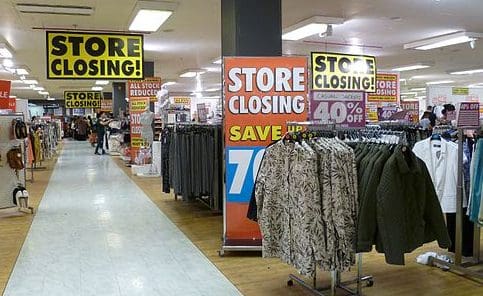A bookseller in the Yorkshire Dales has hit the headlines, branded a “shopkeeper from hell”. He called a customer a “pain in the arse”, and has been the subject of numerous complaints to the local parish council about his rudeness. To complete the outrage, he charges 50p as an entry fee to his shop.
The incident is at face value simply an amusing and trivial story. But it also raises interesting issues in economic theory.
In principle, if the bookseller kept on offending potential customers, he would be driven out of business by market forces. People would no longer use his shop and would take their custom elsewhere, thereby costing him potential sales.
In a much more important context, Milton Friedman made a very similar argument about discrimination in employment in the United States. In the process of hiring, Friedman believed that a profit maximising company would always choose the best person for the job, regardless of his or her background. To do otherwise would impose unnecessary costs on the firm, and it would be driven out of business by its non-discriminatory competitors.
Discrimination of all kinds does appear to be much lower in capitalist economies than under other forms of social and economic organisation. But it is not at all clear how much of this is directly due to market forces.
Economic theory focuses on equilibrium, the situation which notionally exists when all the various incentives, costs, profits and so on have worked their way through the system.
But economics says very little about both the process by which equilibrium is reached, and how long it takes to get there. A very distinguished British economist, Tony Atkinson, died at the start of the year. A brilliant paper he published when in his early 20s showed that, in the core model of growth in economic theory, moving from one equilibrium to another would take over 100 years.
In practice, market forces do work. But they are an imperfect filter of firms’ evolutionary fitness to survive. Numerous studies show that the most efficient firms in an industry often record productivity levels three of four times higher than the least efficient. And these differences persist. Inefficient companies can survive for a long time.
The 50p entry fee, refunded if a purchase is made, raises a further issue for economics. The shop is next to a bus stop, and the owner believed that many browsers were simply taking refuge from the wind and rain, with no intention of buying.
So the proprietor was simply creating a market, in this case proper shelter and warmth for bus travellers. But the entry fee generated general outrage. This is clearly not an area in which the use of markets is believed to be appropriate.
The same sentiment is behind the otherwise inexplicable support for a return to state ownership of railways. Anyone who can remember British Rail will shudder at the memory of just how awful it was. Yet, like health, many believe that it is not morally correct to use markets in this context.
Economics and experts are under attack. But economics can illuminate many aspects of everyday life.


